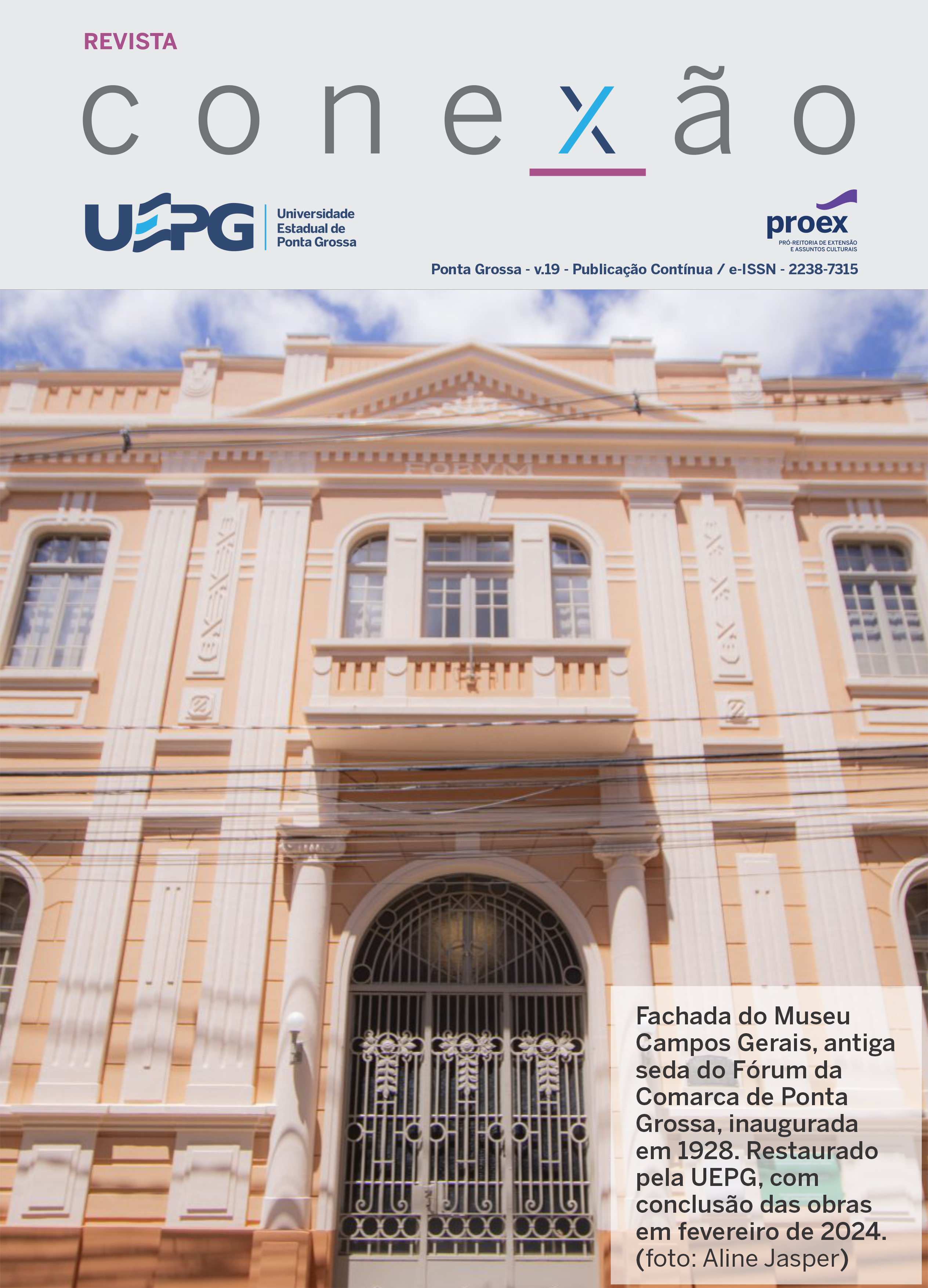EXTENSÃO UNIVERSITÁRIA NAS ÁREAS VERDES E ESCOLAS. A EXPERIÊNCIA DO PROJETO “HOTEL DE POLINIZADORES: TORNANDO AS ÁREAS URBANAS AMIGÁVEIS PARA ABELHAS E VESPAS”
DOI:
https://doi.org/10.5212/Rev.Conexao.v.20.23735.023Abstract
Pollinators are declining globally due to habitat loss and the consequent reduction in nesting sites. Among pollinators, bees and wasps are among the most important agents; however, public knowledge about these groups is limited, with over 85% of bee and wasp species being solitary and not forming colonies. The objective of this work is to present the proposal and results of the extension project "Pollinator Hotels: Making Urban Areas Friendly for Bees and Wasps," which aimed to create a more pollinator-friendly urban environment by installing 'Pollinator Hotels' that provide shelter for bees and wasps within the urban landscape of Rondonópolis. The hotels were crafted and distributed in green areas and public schools to promote species conservation and to raise awareness about the importance of pollinators, combined with environmental education.
Downloads
Downloads
Published
Issue
Section
License

This work is licensed under a Creative Commons Attribution 4.0 International License.
a) Authors retain copyright and grant the journal right of first publication with the work simultaneously licensed under a Creative Commons Attribution License that allows others to share the work with an acknowledgement of the work's authorship and initial publication in this journal.
b) By submitting an article to the Revista Conexão UEPG and having it approved, the authors agree to assign, without compensation, the following rights to the Journal: the rights of first publication and the rights to redistribute the article and its metadata to the indexing and reference services that the editors deem appropriate.
c) Readers are free to transfer, print out and use the articles published in the Journal, as long as there is always explicit mention to the author(s) and to the Revista Conexão UEPG and as long as there is no alteration of the original work. Any other use of the texts needs to be approved by the author(s) and by the Journal.






